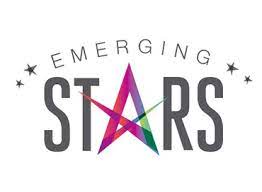 Sairee Chahal, Fleximoms, India. Finalist for 2012 Asia Pacific, Cartier Women’s initiative award.
Sairee Chahal, Fleximoms, India. Finalist for 2012 Asia Pacific, Cartier Women’s initiative award.
Fleximoms connects women and mothers looking to enter or re-enter the workplace with job opportunities, information and mentoring
India’s GDP may have slowed in 2012, but the country is still growing: its middle classes, labour needs and higher education levels are on the rise, with women students now outnumbering men on certain courses. Yet a mere 22% of all female graduates go on to enter the workforce. ‘Women in India experience a lot of social pressure,’ says Sairee Chahal, 36, an entrepreneur who wants to help change these figures. ‘They are expected to look after all domestic matters, from the extended family to the home and the pets, and frequently end up blunting their ambition.’
Yet educated and qualified women could fill India’s burgeoning need for professional and managerial staff – a shortage of which is restricting the country’s growth, as Prime Minister Manmohan Singh recently declared. Overall, women make up just a quarter to a third of the nation’s workforce, and nearly half have dropped out of work by mid-career. Take Sairee’s own experience, when she recently attended her high school reunion: ‘we were a class of 60 with 35 girls, only five of whom are working today. And nobody found that odd!’
Back to work
For Sairee, the key ticket is flexibility. ‘I want to help relieve the burden many women feel returning to work would involve – be it through the stress of social responsibilities or their reticence about going back to work after starting a family.’ Her company, Fleximoms, a workflex website for women and mothers, is ample testament that women are eager to join the fray: ‘technology has brought about a revolution in the way we work that fits perfectly with flexible solutions for work-life balance. Just because society wants them to stay at home doesn’t mean women don’t feel left out of intellectual pursuits – just like anywhere else in the world!’
To help them get back in the saddle, Fleximoms has created a thriving community sharing advice and information. ‘Joining Fleximoms opens up a whole support network,’ Sairee explains. First there’s the job board, which posts opportunities from SMEs and corporations, 80% of which have flexible hours or conditions. ‘We screen jobs to make sure they’re not “reverse flexibility” i.e., full of unfeasible conditions! They have to offer a basic salary and decent working hours.’
Services catering to women
Fleximoms markets a series of coaching services, from basic CV-writing to full-blown seminars. ‘The very first service we launched was our Second Chance Back to Work programme, for women who have been out of the job market for a long time and are looking for a life change. It covers current work trends and draws up a personal roadmap to establish what steps need taking.’ Career advice sessions target those who have been out of the market for lesser periods; women in work looking for new options are also catered for, with an in-depth skills review.
Revenue comes from subscription to the coaching services and a commission on each job offer, plus a finder’s fees to headhunt the right applicant on request. Further streams range from specialist consultancy to programmes on gender policy that aim to help women feel more confident about tackling sectors dominated by men. Fleximoms itself employs 12 people – seven full time and five on a flexible basis – to manage the 250 companies who now use the job board and the 2,000+ job connections that have been made since its launch in 2011.
Boost the economy and morale
You could say that Sairee is a bit of a trailblazer: ‘I’m the only woman in my family who has ever worked! ’ When she became a mother six years ago, she was in the midst of setting up a consultancy venture: ‘I realised how lucky I was to have a network of people to help on all fronts. It inspired me to seek ways to help other women break through and avoid being denied opportunities and choices.’
With an estimated 30 million women between the ages of 30 and 55 in India, Sairee intends to get her message across to as many as possible and can serve as a vibrant role model. In many aspects, Indian society is still driven by tradition for women: the divorce rate is among the world’s lowest, single mothers are rare and women have not generally been seen as an economic power. ‘Women have only recently won the right to an equal share of assets if divorce does occur,’ notes Sairee, ‘we weren’t seen as needing access to economic resources! Yet more women in work would boost the economy, income and consumption.’ Not to mention morale and personal fulfilment.
Watch the Video here



